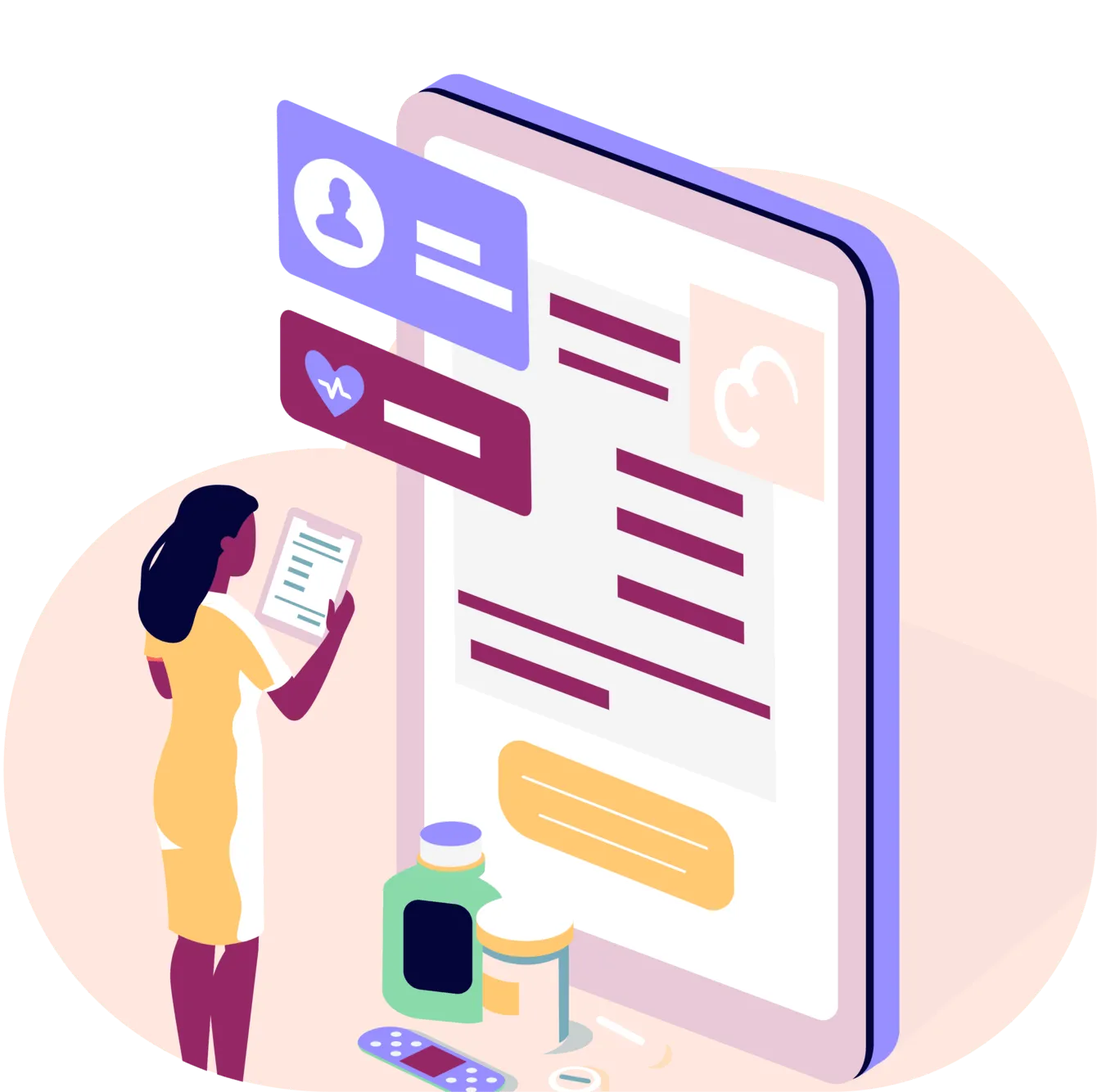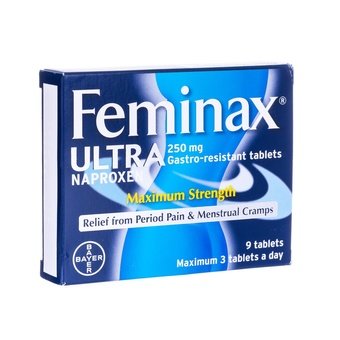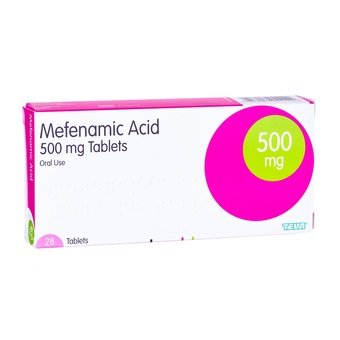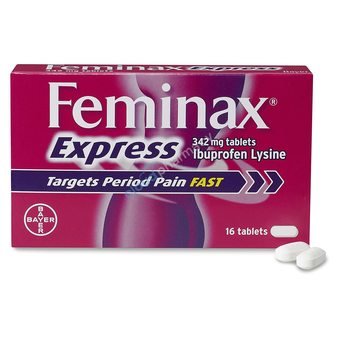Period Pain

More information
Introduction
Period Pain Tablets Online
Many women experience cramping and back pain before, during, and after their period. Usually, this can be managed with heat packs and over the counter painkillers such as Paracetamol and Ibuprofen. However, for many women, these pains can be quite debilitating and stronger painkillers are required.
You can treat period pain online from our UK registered prescribing service.
For more information on Period Pain please visit the NHS guide here.
Treatments
More information
Once an online consultation has been been approved by our medical team, our pharmacy will safely prepare and ship your treatment to you in discreet packaging using Royal Mail or DPD.
What is Period Pain?
Period pain is the name used for the abdominal pain that women often experience at the end of their menstrual cycle, and throughout the length of their period. The severity of the pain is usually at its peak on your heaviest day of bleeding. The pain can affect all women differently, with some experiencing very mild pain (or none at all), while others can have very severe, debilitating pain that disrupts their daily lives.
It is usually felt as painful muscle cramps in the stomach (and sometimes back) and it can either come as short, sharp spasms or a longer, dull ache. Most women will experience period pain at some point in their life, although it can often be most intense in your adolescent years and your twenties, rather than as you get older. It’s also normal to notice differing degrees of pain on each menstrual cycle, with some being worse and others being much milder.
Causes
What causes Period Pain?
Each month the lining of your womb (uterus) thickens in preparation for pregnancy, if this occurs the fertilised egg attaches itself to the lining. If the egg isn’t fertilised then the lining breaks down as it is no longer needed. Your body starts to release chemical called prostaglandins which encourage the muscles of your womb to contract and tighten so that they can squeeze the unneeded lining out of your body. This process causes period cramps, these can range from mild manageable pain to pain that stops you from doing everyday tasks. It isn’t known why some women experience more period pain than others. If you experience extreme period, it isn’t normal and you don’t have to live with it, discussing your symptoms with your GP could help you to get treatment to relieve your menstrual cramps.
Symptoms
Period Pain Symptoms
Symptoms of menstrual cramps include:
- Throbbing or cramping pain in your lower abdomen that can be intense
- Pain that starts 1 to 3 days before your period, peaks 24 hours after the onset of your period and subsides in 2 to 3 days
- Dull, continuous ache
- Pain that radiates to your lower back and thighs
Some women also have:
- Nausea
- Loose stools
- Headache
- Dizziness
What treatments are available?
Period Pain Treatments
In most cases period pain is mild enough to treat at home.
The treatments we offer for period pain are:
Self-help measures to try are:
- Stop Smoking - smoking is thought to increase the risk of period pain
- Exercise - you may not feel like exercising during a painful period, but being active may reduce pain; try some gentle swimming, walking or cycling
- Heat – putting a heat pad or hot water bottle (wrapped in a tea towel) on your tummy may help reduce pain
- Warm bath or shower – taking a warm bath or shower can relieve pain and help you relax
- Massage – light, circular massage around your lower abdomen may also help reduce pain
- relaxation techniques – relaxing activities, such as yoga or pilates, may help distract you from feelings of pain and discomfort
- Transcutaneous electronic nerve stimulation (TENS) – a small battery-operated device that delivers a mild electrical current to your tummy to help reduce pain
FAQ
What causes Period Pain ?
What causes Period Pain?
Each month the lining of your womb (uterus) thickens in preparation for pregnancy, if this occurs the fertilised egg attaches itself to the lining. If the egg isn’t fertilised then the lining breaks down as it is no longer needed. Your body starts to release chemical called prostaglandins which encourage the muscles of your womb to contract and tighten so that they can squeeze the unneeded lining out of your body. This process causes period cramps, these can range from mild manageable pain to pain that stops you from doing everyday tasks. It isn’t known why some women experience more period pain than others. If you experience extreme period, it isn’t normal and you don’t have to live with it, discussing your symptoms with your GP could help you to get treatment to relieve your menstrual cramps.
What treatments are available?
Period Pain Treatments
In most cases period pain is mild enough to treat at home.
The treatments we offer for period pain are:
Self-help measures to try are:
- Stop Smoking - smoking is thought to increase the risk of period pain
- Exercise - you may not feel like exercising during a painful period, but being active may reduce pain; try some gentle swimming, walking or cycling
- Heat – putting a heat pad or hot water bottle (wrapped in a tea towel) on your tummy may help reduce pain
- Warm bath or shower – taking a warm bath or shower can relieve pain and help you relax
- Massage – light, circular massage around your lower abdomen may also help reduce pain
- relaxation techniques – relaxing activities, such as yoga or pilates, may help distract you from feelings of pain and discomfort
- Transcutaneous electronic nerve stimulation (TENS) – a small battery-operated device that delivers a mild electrical current to your tummy to help reduce pain
What are the symptoms?
Period Pain Symptoms
Symptoms of menstrual cramps include:
- Throbbing or cramping pain in your lower abdomen that can be intense
- Pain that starts 1 to 3 days before your period, peaks 24 hours after the onset of your period and subsides in 2 to 3 days
- Dull, continuous ache
- Pain that radiates to your lower back and thighs
Some women also have:
- Nausea
- Loose stools
- Headache
- Dizziness
Guides
How it works

First...
Complete a quick eligibility check

Then...
Order your treatment

Finally.
Fast, confidential delivery to your door



















